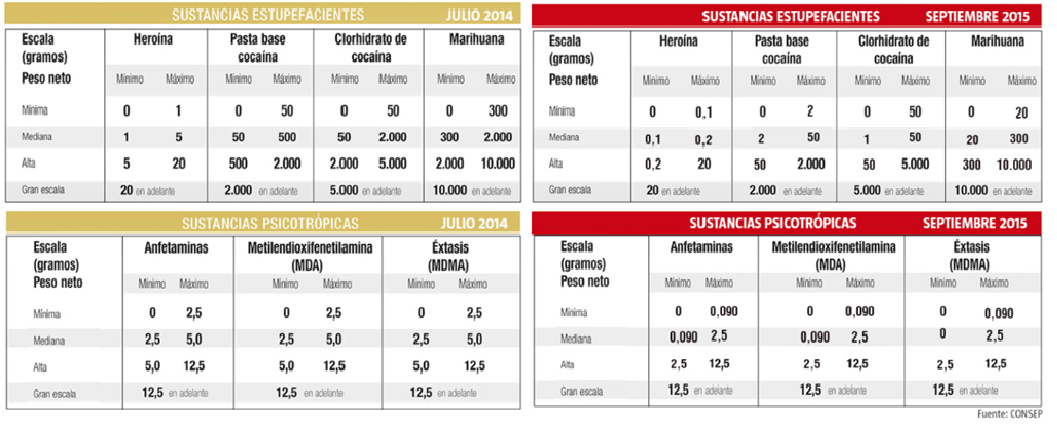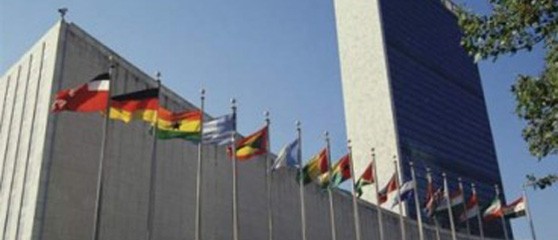At the end of August, the Minister of Government, Alexandra Vela, announced that the Ecuadorian government will propose to the National Assembly the elimination of Drug Possession Table that were created in 2013 by the National Council for Substance Control Narcotic and Psychotropic Drugs (CONSEP).
This famous table makes it possible to differentiate people from micro and major drug traffickers according to the amount of drug they possess, and to sentence them accordingly. In this way, the main objective of the table was to move towards a more public health approach to problematic drug use, an innovation in the country which had never trialled anything like that.
Unfortunately, the table never meant progress for the country in terms of drug decriminalisation or a change of perspective for the citizens or the authorities. The table was left there, static and without an effective and clear campaign of education, awareness and training. Now with a rise in insecurity in the country, with murders, kidnappings and violence in prisons being a common topic in the media, the Government, in what we know is an already unsuccessful attempt to control a situation that clearly is out of their hands, wants to re-establish a "heavy handed” approach in the war on drugs.
This violent approach brings many new worrying implications. In the first place, people who use drugs would be criminalised again, instead of providing them with adequate care that allows individuals to reintegrated society, employment and politics. The repercussions this can have on people’s sentencing and incarcerate can be very negative from a psychological and physical point of view.
Secondly, violence in a country that already struggles with a lack of safety will enable human rights violations mainly to those who are sentenced, bringing serious consequences for the individuals and their loved ones. Public policies must be accompanied by restorative measures for individuals and families who have suffered first-hand from the war on drugs.
Thirdly, the war on drugs has never worked and has brought more problems than solutions for what they claim to defend. Finally, the State must stop meddling in the affairs of individuals as the consumption of substances is merely a rational human decision, where the rights of other people are not violated.
Drug use and trafficking are recurrent in Ecuador and throughout the region. However, the authorities want to return to useless practices to ‘counter-attack’ the problem. The example of Portugal and the results they have obtained with decriminalisation demonstrates the success of innovative policy solutions. Moving away from a table that helps differentiate between minor and major crimes is a step in the wrong direction, one that is fuelled by a dogmatic belief that heavily punishing those that use drugs will reduce their use. No heavy handed policy against drugs has worked, so why expect a different outcome this time?


